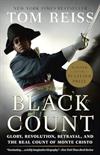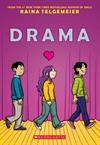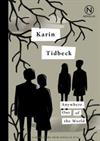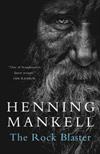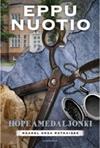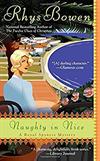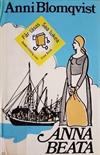
The Swan Thieves
5 journalers for this copy...
Unabridged audiobook on 17 CDs. Read by Sarah Zimmerman, Erin Cottrell, John Rafter Lee, Treat Williams, and Anne Heche.
The audio version of this book is decent, with a full cast of narrators. I could have done without the occasional music in the background, and I saw no reason for Beatrice and Olivier to read with such obnoxiously fake French accents, but otherwise it was pretty good.
Gave this to KateKintail, who frequently participates in audio-only bookboxes.
Melydia gave this to me at a convention planning meeting. I've enjoyed another book by this author. I'm looking forward to reading it and then adding it to an audiobookbox. Thank you!
I guess my main problem with this book was that I could never quite figure out what was going on, so it always felt like I was sinking in quicksand with nothing to hold onto. And I'm sure that the author wanted me to not quite know what was going on-- that was the big mystery central to the story, wasn't it? It was the thing that kept me listening. But after a while, after, maybe, 10 discs, I was just annoyed as heck that I wasn't any closer to figuring it out. The connection to Beatrice was obvious. But was he channelling her? Was he somehow imagining that he knew her? Was there some kind of weird time travel going on? Was she projecting her life to him in her dreams (she was always talking about her dreams). Was she aware of the connection between them? Was she having the same sort of thing where she would start painting him just as he was painting her? I thought that would be amazing. Alas, none of that came to pass. Robert Oliver just really liked her work and fixated on her. Boring compared to all the possibilities that were rushing through my mind after 17 LONG discs of wondering.
Also, I really didn't care for the main character, the detective. Marlow might have been cool, but he lost me during his first trip to the art museum where he starts describing one of the museum employee's body and thinks about having sex with her. And then, minutes later, he's doing to same thing regarding a woman he's standing next to in the gallery (okay, so he ends up actually having a relationship with her later). And then not long after, he goes to talk with his patient's ex-wife and immediately starts by describing her breasts. Yeah. Made me lose interest in the guy from the start.
Okay, so the story has to do with art. And in that respect, I was captivated. We saw art from so many different angles and in so many different ways. New artists, occasional artists, art professors, art students, artists from a century ago, art collectors, families of artists, etc. For 17 discs we lived and breathed so many aspects of the art world. If I didn't already appreciate art, I'm sure the book would have made me do so. It was not only well-researched but well-described. I was absolutely in love with that aspect. It was so vivid and real.
Which brings me to the story. The main story is about Robert Oliver, a painter who attacked a painting in the National Gallery of Art (a painting which doesn't actually exist, I'm sad to say). A psychiatrist (who happens to paint a little as a hobby) is brought in to figure out why he attacked it. We hear bits of the story from people who know Oliver, because Oliver doesn't speak much (or at all) in present day, mostly his ex-wife and his ex-girlfriend (who the psychiatrist later befriends and sleeps with). We also get the story of Beatrice, a French painter from the late 1800s we find out that Robert Oliver is obsessed with. She struggles with her identity as a female painter in that time period and is self-conscious about her work. The stories in the two time periods run parallel for a while, but (as I said) there isn't enough insight into either until the end.
And that's where my main complaint comes in. IMO, The Swan Thieves painting should REALLY have been introduced long before. When we find out near the end that it exists and is amazing, it's not at all as powerful as it could have been because I hadn't known about it before that. There was no emotional pull for me. And the big moment where Marlow gets to see the painting fell flat for me because I didn't care a bit about the painting that was, in fact, so important that it is the title of the novel.
The ending actually infuriated me. When I saw Elizabeth Kostova at the National Book Festival this September, about a week after I had finished the book, I was really tempted to go up to the mic and ask her what exactly Marlow thought he was thanking Robert Oliver for (thank you for going crazy? thank you for passing your appreciation/obsession on to me? thank you for your girlfriend who's now my girlfriend?). But I thought that might, you know, spoil the ending for everyone else (almost all the questions were about The Historian).
The story was slow for me. The characters were a little flat. But the description of the art & art world and the appreciation for art was beautiful. It was certainly worth reading the book just for that.
I picked this up from the audio bookbox. I enjoyed The Historian - it was way too long, and the ending was anti-climatic, but the lavish description of things was so enchanting and beautiful. Looks like that's what I will expect here.
Also, I just don't get Marlowe's obsession about Robert Oliver that goes way beyond his professional duty, and the weak set up kind of hurt the subsequent story telling, as readers do not feel involved. But then, Oliver's obsession with Beatrice doesn't have much substance either.
I enjoyed the description about the paintings, and I had wondered if Beatrice was a real artist. I'd however say that Luncheon of the Boating Party by Susan Vreeland is a much tighter and more enjoyable book about Impressionism.
Will be saving this for the next bookbox.
 Azuki
Azuki at Audio Bookbox, A Bookbox -- Controlled Releases on Saturday, July 28, 2012
at Audio Bookbox, A Bookbox -- Controlled Releases on Saturday, July 28, 2012
Released 11 yrs ago (7/28/2012 UTC) at Audio Bookbox, A Bookbox -- Controlled Releases
CONTROLLED RELEASE NOTES:
The author weaves the storylines in and out. The stories of the artist, the women who love him, the psychiatrist, and an artist from the past interconnect. I found myself sometimes caring for the characters and other times not caring especially the characters from the past.
Kostova's first novel, The Historian, was rich and full of life mixed with mystery and suspense.
The Swan Thieves begins by introducing us to Dr. Andrew Marlow, a psychiatrist whose newest patient is Robert Oliver, a painter who attacked a piece of artwork at the National Gallery of Art. Robert has been recently divorced from his wife Kate, has abandoned his latest girlfriend, and now refuses to speak. Since his patient refuses to talk, Marlow must delve into Robert's personal life to find the mystery behind Robert's display of violence and lack of communication, as well as discover the identity of the woman he paints over and over. In doing so, Marlow discovers a long hidden secret and scandal in the world of 19th century art. I found myself wondering how many psychiatrists would spend all this time and money to help a patient.
I will probably put this in the next CD bookbox.
 booklady331
booklady331 at USA Postal Release Bookbox Audio Bookbox in -- Bookbox, -- By post or by hand/ in person -- USA on Wednesday, February 20, 2013
at USA Postal Release Bookbox Audio Bookbox in -- Bookbox, -- By post or by hand/ in person -- USA on Wednesday, February 20, 2013
Released 11 yrs ago (2/20/2013 UTC) at USA Postal Release Bookbox Audio Bookbox in -- Bookbox, -- By post or by hand/ in person -- USA
WILD RELEASE NOTES:
An artist of some renown, Robert Oliver, attacks a painting in the National Gallery. Although he is stopped before any damage is done, he is naturally held for psychiatric evaluation. Oliver ends up a patient of Andrew Marlow, a psychiatrist living a solitary, ordinary life. A painter himself, Marlow attempts to bond with Oliver through art, but his patient steadfastly refuses to speak. Noticing that Oliver sketches the same woman over and over, Marlow begins interviewing Oliver’s colleagues and lovers, trying to determine what triggered the attack. A series of 19th century letters, written by a female Impressionist and treasured by Oliver, may provide the only physical clue to his behavior. As the letters are translated into English, the reader is swept back to the exciting days when Impressionism was new and bold.
If you were a fan of The Historian, Kostova’s previous novel, you’ll instantly recognize the author in The Swan Thieves. It uses many of the same devices: an academic on a quest for knowledge to solve a mystery, obsession with a person long lost, multiple narrators, letters and diary entries telling chunks of the story, exotic travel, and excruciating details about everything. But while I enjoyed Kostova’s vampire novel quite a bit, I found this story to be dreadfully dull. It’s nearly six hundred pages long, and by the three-quarter mark I was feeling the weight of every single page.
The first problem stems from the fact that Marlow, rather than treating Oliver, seems to adopt Oliver’s obsession as his own. He might claim that he’s interviewing Oliver’s ex-wife or former boss so that he can better understand his patient, but that’s BS. He just wants to find out the identity of the woman in Oliver’s art because, like Oliver, he has become obsessed with her face. As a psychiatrist, Marlow seems to be a dangerously intrusive one. He’s practically a stalker! He watches Oliver’s ex-wife through a window as she prepares dinner for her kids. Although his professional instincts tell him it’s a bad idea, Marlow begins dating Oliver’s former mistress. Marlow is dull and fussy, and the king of unnecessary detail – no one cares what he ate for dinner or his thoughts on traffic in the DC area, but he shares them anyway.
Oliver himself spends most of the novel in silence, but the man revealed in the memories of the women in his life is incredibly selfish. He is basically in love with a woman who painted in the 19th century, which is freaky enough, but he reacts to any inquiries about this woman in his paintings by shutting down and refusing to “deal” with life in the present.
Random note: It’s really strange that everyone always refers to him as Robert Oliver, not just Robert or Robbie or something like that. It’s always first AND last name. What’s up with that?
The historical sections of the novel, told through letters and third person narration, add very little to the main story of Oliver. It feels like an entirely different novel has been chopped up and mixed in with the mystery/psychological story Marlow’s trying to tell. Beatrice isn’t compelling enough on her own to justify Oliver’s interest in her, especially when one considers that her third person narrative episodes would be unknown to those researching her in the present, so while her actions are explained to us they remain murky to those in the book.
As an art historian and sometimes painter, I thought I’d enjoy this novel, but it was a tedious slog all the way through. Even if you enjoyed The Historian, as I did, I would not recommend this novel.
Released 10 yrs ago (11/5/2013 UTC) at -- Mailed, -- By post or by hand/ in person -- USA
CONTROLLED RELEASE NOTES:


 This book is in a Controlled Release!
This book is in a Controlled Release!
